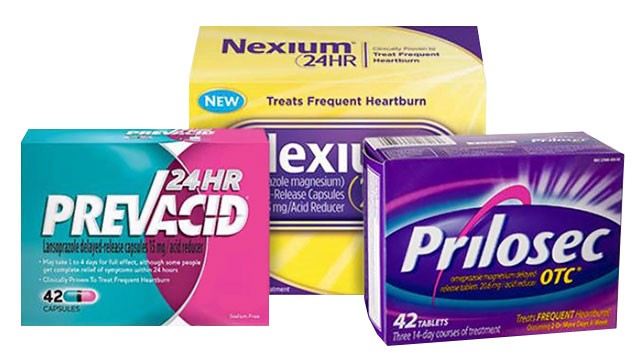
PPIs (Prilosec, Prevacid, Nexium) Have Been Linked to Increased Risk of Dementia
For many people, heartburn is a chronic issue that requires the frequent use of specially formulated medications to provide relief. Unfortunately, a recent study has provided evidence that one class of these medications is quite possibly a risk factor for dementia in the elderly.
Heartburn Medications and Dementia: Little Known Risk Factor
A recent study has provided a possible link to dementia for senior citizens who use a common class of heartburn medications called proton pump inhibitors (PPIs). This class of medications includes Prilosec®, Prevacid®, and Nexium®, all of which work by lowering how much acid the stomach produces.
The study was conducted by German researchers who discovered that those who are 75 years of age or older and regularly take PPIs increase their risk of dementia by 44 percent in comparison to seniors who do not take these medications.
Unfortunately, the study did not show a cause-and-effect link, but only an association. It would be necessary to conduct clinical trials in order to achieve more definitive results. This study follows previous results that indicated the medications placed users at risk for heart disease and chronic kidney disease.
Recent Concerns and Statistics
There have been recent concerns that Americans are overmedicating themselves with PPIs in order to treat mild cases of heartburn or acid reflux. It is believed that doctors inappropriately prescribe as many as 70 percent of PPI prescriptions in the United States.
It is further believed that 25 percent of regular, long-term users could discontinue use of the medications without suffering from an increase in acid reflux or heartburn. Some of the potential problems the study uncovered when the medications are overused include:
- 20 to 50 percent higher risk for chronic kidney disease.
- Possibility the medications can affect a person’s cognitive ability.
- The medications have negative effects on the levels of amyloid beta and tau, the proteins associated with Alzheimer’s disease.
- Use of PPIs can lead to a deficiency of B12.
Unfortunately, these findings are preliminary and much more testing needs to be done. One of the main concerns about the study was its inability to control for the risk factors relative to body weight and diet. As it stands, results of this study do not provide enough concern for most doctors to feel the need to warn their patients about the use of PPIs.
Have you suffered side effects after taking Prilosec, Prevacid, or Nexium?
If you or someone you love has suffered due to the use of a PPI heartburn medication, there’s no risk in discussing your case with a drug injury lawyer. Most personal injury attorneys will look into the facts of your case for no charge, and explain the options available to you via a free consultation. If you’d like us to look into your situation free of charge, please call 1-877-659-2580.
We do not recommend making changes to your medications based solely on this article. Doing so may lead to additional complications. We ask that you share any concerns about changing medications with your physician.







